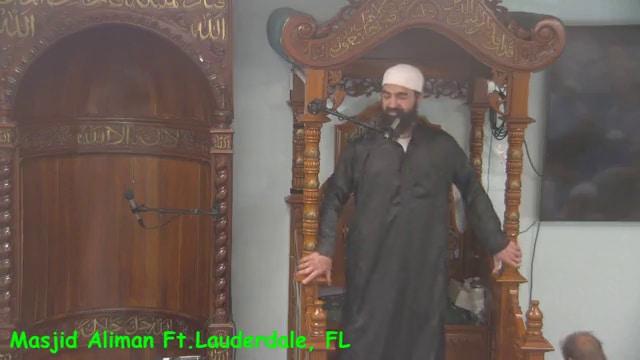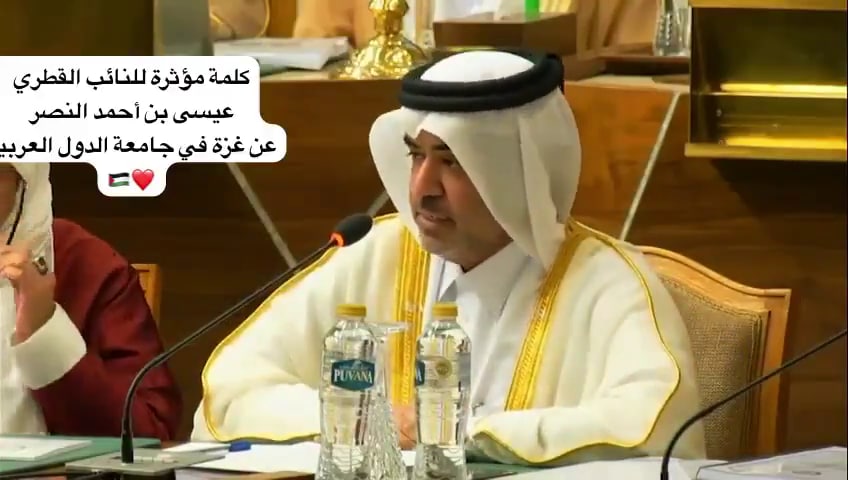
Following are excerpts from an interview with Saudi Prince Talal bin 'Abd Al-'Aziz Aal Sa'ud, which aired on Dubai TV on September 16, 2005.
Talal bin 'Abd Al-'Aziz Aal Sa'ud: About three years ago we signed, at the UN headquarters, the international Convention on the Elimination of All Forms of Discrimination against Women. Since we signed this document, we must adhere to it. I don't recall right now the exact articles of this convention. I saw and read it, but its details don't come to mind right now. But it does have some provisions granting women their rights.
Sir, the women's rights that are required... Some people, unfortunately, are being stubborn or hypocritical, claiming the opposite of this - the women's rights we demand are those provided by the Shari'a, the rights that are derived from the Koran and the Sunna. If we gave women these rights in their entirety - that would be enough.
I remember, for example, that in Europe some time ago, a wife could not be an independent businesswoman, while in Islam for 1,400 years now, a woman could manage her own money independently. This is one of many examples.
There are many sheiks... Saudi Arabia is not the only Islamic country in the world. There is Islam in other places, where they have their own interpretations. In these Islamic countries, women work side by side with men. Sheik Muhammad Al-Ghazali, one of the greatest religious authorities, once said: "I prefer Thatcher to seventy bearded Islamists." He said that, not me. Why? Because some women who are more virtuous and self-confident than men. Therefore, I think women should get their rights, even if only gradually, until she can...
Host: Do you expect women to enter the Saudi government in the near future?
Talal bin 'Abd Al-'Aziz Aal Sa'ud: I see what is going on. You ask if women, who cannot even drive cars, will join the government? That would be difficult.
Host: But there is a Saudi woman who became a pilot. She went straight from the ground to the skies.
Talal bin 'Abd Al-'Aziz Aal Sa'ud: This girl said to me... This pilot said to me when I asked her: "I fly a plane, but I cannot drive from my house to the airport."
Sir, it is very important not to deprive people of their livelihood, not to deprive them of their daily bread. This is the worst thing a person can do to another. When you say women must not work, you deprive them of their livelihood. How can this be? This is forbidden. The newspapers reported that in Riyadh and in Jedda... Seven women in Riyadh began working as maids, in other people's homes, and so did 45 women in Jedda, for 800 riyals per day. They need to eat.
[...]
Host: Your honor, how do you view current Saudi-American relations?
Talal bin 'Abd Al-'Aziz Aal Sa'ud: To the best of my knowledge, at the top levels, relations are good. But relations are not good, and are even bad, at the level of the peoples.
Host: How come?
Talal bin 'Abd Al-'Aziz Aal Sa'ud: They still think that we are... They still attribute the fifteen pilots (of 9/11) to us, and Bin Laden is of Saudi origin. They are always criticizing us about money, as if there's no other place besides Saudi Arabia that produces oil. They claim that Saudi Arabia distributes this money to extremists around the world, to mosques, and to schools.
All this is etched in their minds, and it would require time, work, and great effort for the American people to... This is very important for us. The whole world needs the American people. It needs America. America is still the hegemonic power in the world, and therefore we must find ways to get the American people to see the truth, even if gradually. This isn't done by Zionism. Zionism takes advantage of it, but the American people itself...
Host: Does the Saudi public harbor hatred for the U.S.?
Talal bin 'Abd Al-'Aziz Aal Sa'ud: I think all the Arabs... It's not hatred. Hatred is a very harsh word. Let's call it disgruntlement. I am one of them.
America's foreign policy... America is at a loss regarding the Arab world. The Palestinian issue, and then the matter of Iraq... These make the Arab people feel that something is wrong, that something is not right with American policy. The tragedy is that most of the leaders I've met are complaining about the same thing - both in Europe and in the Third World. They are complaining that the Americans do not listen to advice from their friends and allies. This is important.
Host: Do you think that American policy is fueling terrorism?
Talal bin 'Abd Al-'Aziz Aal Sa'ud: What?
Host: Do you think global terrorism is on the rise due to American policy?
Talal bin 'Abd Al-'Aziz Aal Sa'ud: How can it be otherwise? America hasn't reformed its foreign policy. It continues...The truth is that American foreign policy towards our region and towards Islam in general, is not just. How can they call a mujahid, who is fighting...
Host: ...a "terrorist"?
Talal bin 'Abd Al-'Aziz Aal Sa'ud: ...who is fighting against...
Host: ...occupation?
Talal bin 'Abd Al-'Aziz Aal Sa'ud: ...who is fighting the colonialist in order to defend his home and family in Palestine - and they call him a "terrorist." How can this be? America itself, when it rebelled against the English – how did it do so? By resistance. This makes the Arab suspicious of the unjust policy.
Host: Not to mention what is going on in Iraq. How do you view the resistance in Iraq, which is part terrorism and part resistance?
Talal bin 'Abd Al-'Aziz Aal Sa'ud: Both sides...According to what I have read and heard from the Iraqis themselves, one side is actually fighting the American presence in Iraq, but it has been infiltrated by terrorists, and confusion has ensued. I don't think that a real mujahid who fights foreigners kills his own people and destroys national institutions, like the Iraqi oil industry.
[...]
I've met with Iraqis in Beirut, in Egypt, and in Riyadh, and they urged their Sunni Arab brothers and neighbors to take action like the other neighboring countries. As you know...
Host: You mean Iran, Turkey, and Israel...
Talal bin 'Abd Al-'Aziz Aal Sa'ud: For instance.
[...]
I am referring to Saudi Arabia and Jordan in particular.
Host: Why Saudi Arabia and Jordan?
Talal bin 'Abd Al-'Aziz Aal Sa'ud: Jordan is not being blamed (for terrorism), and they are Sunni Arabs. They don't need to act in a way that will make people say... They should act calmly, through diplomacy, until they rescue this group (of Iraqi Sunnis) from the mess they've gotten themselves in.













